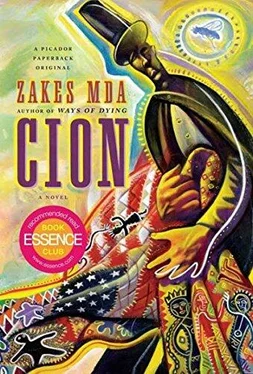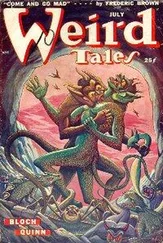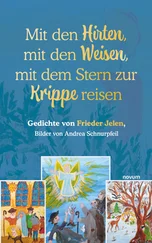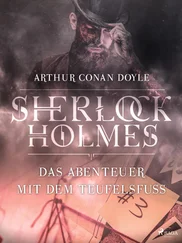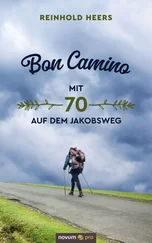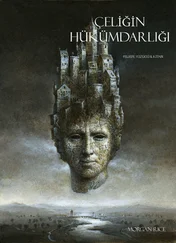Her teardrops make her face look like that of a clown. I burst out laughing.
“What’re you laughing at?” she asks.
“Your tears are beautiful,” I say.
“Your tears are beautiful too,” she says.
We cuddle into each other’s arms and sleep. I pray that no one comes in the night and tows the RV away since I suspect it is illegally parked. My thoughts float back to Kilvert; to Ruth and Mahlon.

By the end of October Mahlon’s garden of gnomes had become smaller. Half of it was taken by flowers. Mahlon was becoming a flower man again. He just woke up one day and decided to plant something Ruth called “live-forever.” It would dry with the winter chill in a few weeks’ time, but would come back to life in spring. It would repeat that cycle over and over again till, according to Ruth, the end of time.
I saw this garden when I went looking for Orpah after I had not seen her for days since the Katrina concert. And when I went again the next day to plead with her.
“She’s come to her senses,” said Ruth as she fussed over Mahlon’s flowers.
Instead of talking about Orpah and what she meant exactly by her coming to her senses she was more excited about the flowers. They were daffodils, she said. Besides the bushes of roses. Her Mr. Quigley secretly planted the bulbs a month before, which was a wise time because daffodils liked to establish their roots before the ground froze. They needed the cold weather to form flower buds. I would see them in full bloom early in spring, perhaps in March, because as far as she knew I would still be here at that time since Orpah was not going anywhere.
“I want to hear that from her,” I said to Ruth.
But she would not see me. I decided at that time that she was a lost cause. I would stop chasing after her, pack my things and leave Kilvert once and for all. I would leave her the RV because it was useless to me without her.
The next time I went to Ruth’s the garden was still thriving, despite the drought that was devastating southeast Ohio. The summer had been dry and farmers were fearful that in winter their animals would have no feed. Some had started to use winter feed as early as August. The county was declared a disaster area by the U.S. Department of Agriculture, although the drought conditions were rather spotty. The bottom of the hills had some water while the hills were dry.
It did not seem like the drought was having any effect on Mahlon’s garden. It was getting greener by the day. Ruth’s garden of Swiss chard, parsley and cabbages was luxuriant too.
On the driveway Mahlon was feeding a cow with his hand. Orpah was holding a basin of cow feed. She was sobbing in convulsions. None of them paid any attention to me. I could see though that Mahlon was trying to comfort Orpah. I could hear something along the lines of “don’t worry, little girl, everything will be all right.” I decided not to stop.
There were changes at the porch as well. Ferns were hanging among the wind chimes. There was fuchsia hanging in a basket.
In the living room Ruth was at her workstation cutting some fabric with the rotary cutter. She did not try to hide it this time. Asian beetles were giving her a hard time though. It was the season once more. I remembered how I helped her stamp them out a year ago. Now they were getting into her coffee, and some had died in the mug while she was still enjoying her drink. Others were biting her arms since she was in a short-sleeved blouse. One was impertinent enough to fly into her cleavage, obviously attracted by warmth. She just froze there since she could not take it out in my presence.
She was all smiles, despite the pests. Her eyes were bloodshot.
“Something very bad has happened in my life,” she said softly. “But I don’t wanna talk about it. God says we forgive and forget. It’s hard to forget though.”
At this the smile disappeared and tears ran down her cheeks.
“What is it, Ruth? What happened?”
“I don’t wanna talk about it,” she said. And then forced a smile on her face again.
Instead she wanted to talk about her new fuchsia. Did I see it? It was going to bloom for the whole summer, she boasted. And did I see Mr. Quigley’s cow? Wasn’t it wonderful that Mr. Quigley was going back to keeping animals? The farmers on the hills were forced to sell some of their cattle cheaply because the pastures were parched. Mr. Quigley raised some money to buy himself a cow. The farmer was kind enough to accept a deposit. Mr. Quigley would pay the balance later. And did I know where the money for the deposit came from? From Obed. Her own Obed who had become a man at last.
“I want you to get me a book on Bible quilts,” she said. “I wanna learn me how to make them Bible quilts.”
Orpah entered and sat on one of the car seats. She was sniffling.
Ruth explained that with Bible quilts you appliqué figures from Bible stories on the quilt. She had already cut some of these figures. She pointed at one which she referred to as Moses and showed me on a quilt where the Red Sea would run and where the Moses figure would see a burning bush. With a rotary cutter, she said, she could cut human figures that were as accurate as if they walked out of the Bible itself. I observed that it was wonderful that she had now learned that she could preserve the ongoing tradition while expressing her own ideas.
“Ruth, I have come to say goodbye,” I said. “I am leaving tomorrow morning.”
“How you gonna drive that ugly thing of yours?” she asked.
“I’m coming too,” said Orpah, jumping up and charging to the workstation. “I’m leaving too, Ruth.”
“No, you’re not,” I said firmly.
“Oh yeah, she must go,” said Ruth. “She caused enough trouble already.”
Orpah burst out bawling.
Between Orpah’s snivels and Ruth’s fulminations I learned that Ruth was on a mission to spring-clean and kill the Asian bugs when she came across Orpah’s new drawings in her room. Old habits die hard. She regretted it after she had already ripped them in two. She had not seen Orpah’s drawings for many months and would not have destroyed them if she’d thought about it first.
When Orpah found her precious work in pieces like that she ran out wailing as if someone was dead. At the clothesline she found one of the pre — Civil War quilts — yes, the one with the first Quigley’s image, Lord have mercy on him — and she ripped it with her bare hands. The material had almost pulverized and was going to fall apart on its own in any case, Orpah cried in her defense.
Recounting these events brought more tears to both of them. I was caught in the middle of a storm. I embraced Ruth with my left arm and Orpah with my right. I let them cry as much as they wanted, holding them very close to me.
I could not leave the next day. Not when things were like this. Instead I went to the Center for a dose of sanity. I helped the women package food for distribution. The drought did not help the hunger situation in the Appalachians. Food pantries and soup kitchens were busier than usual. Some soup kitchens in the county were closing down because they could not raise enough donations for food. Yet despite the decrease in donations, lines were becoming longer at soup kitchens. Families in places like Chauncey were uncertain where the next meal would come from. It was the same in Kilvert. Children were suffering from poverty-induced obesity.
“You can’t close your eyes when your neighbor is living in poverty,” said Irene.
“It is the American way to help,” said Barbara.
“It ain’t just the drought,” said another volunteer. “It’s always like this. It’s the story of our lives. We’ve been hungry for generations. From the time the mines closed.”
Читать дальше
